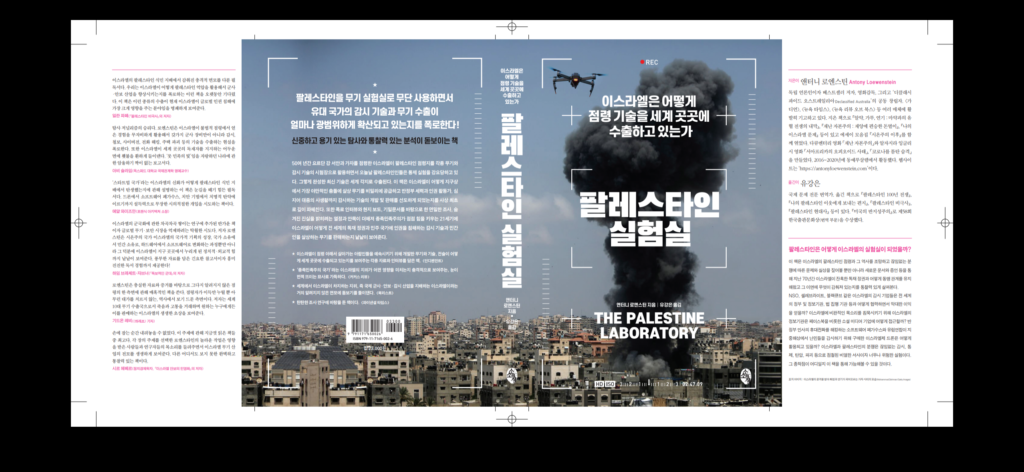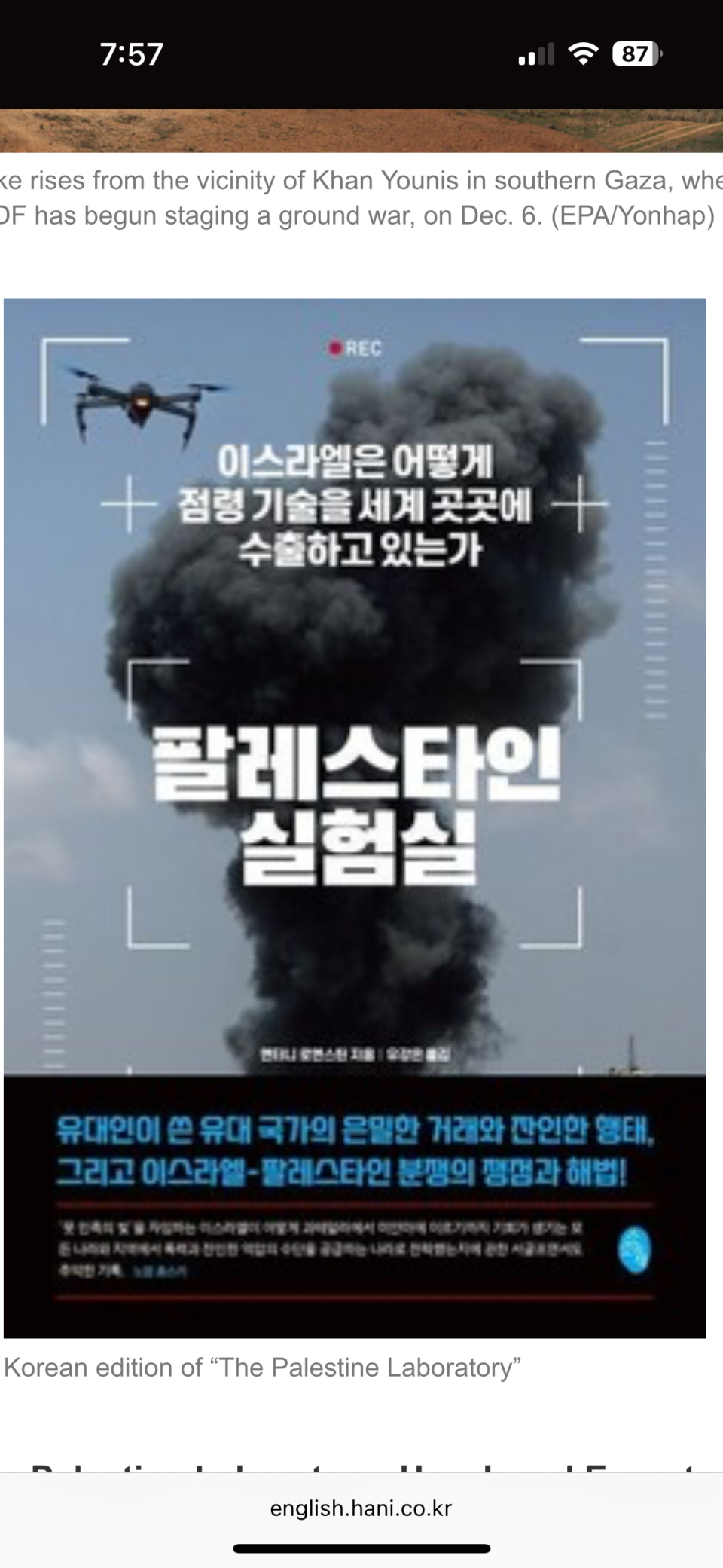I’m happy to announce that the South Korean translated edition of my book, The Palestine Laboratory, is now out with a new post 7 October preface:

The book has received a wonderful review in the local outlet, Hankyoreh:
“The Palestine Laboratory: How Israel Exports the Technology of Occupation Around the World”
By Antony Loewenstein, translated by Yu Gang-eun
Soso, 23,000 won
The Israel-Hamas war broke out following a sneak attack on Israel on Oct. 7 by the militant group Hamas, which is based in the Gaza Strip. So far, there’s no reason to believe the horrific fighting is anywhere close to ending.
While Israel has claimed its goal is to wipe out Hamas, so far at least 16,248 Palestinians have been killed in its indiscriminate attacks on the civilian population of the Gaza Strip. Furthermore, 1.9 million people, or 80% of the 2.3 million people living there, have lost their homes and become refugees.
But is Israel’s war solely designed as retribution against Hamas, as the Israelis claim?
In his book “The Palestine Laboratory,” Antony Loewenstein, a Jewish independent journalist who has reported on Israeli and Palestinian issues for more than 20 years, reveals how Israel has been reaping immense profits from its sale of the “technology of occupation” around the world.
Loewenstein is also known for his book “Disaster Capitalism: Making a Killing Out of Catastrophe”; he also wrote the screenplay for a subsequent cinematic adaptation of that book.
“The Palestine Laboratory” relates how Israel uses Palestine as a testing ground for methods of population segregation and control and then sells its newly developed weapons around the world under the label of “battle-tested weapons.”
According to Loewenstein’s book, Israel’s arms sales in 2021 were valued at US$11.3 billion, an increase of 55% from two years before.
Israel has become one of the world’s top 10 arms producers thanks to the assistance of Western countries including the US, France, Germany and the UK.
The book presents a list of countries that are eager to purchase various weapons sold by Israel, including rockets, anti-air defense systems, missiles, cyber weapons and radar. The list of buyers is jaw-dropping in its breadth, including not only warring states such as Russia and Ukraine but also several countries in Europe, along with India, Azerbaijan and Türkiye.
Along with the grim revelation that many countries that advocate world peace before global audiences have been secretly buying weapons and the “technology of occupation” from Israel, the book also sheds light on the cynical dynamics of international relations.
The book also provides an in-depth look at the history of Israel’s development and sale of weapons since the country’s establishment in 1948. After independently acquiring a military capable of defending its borders, Israel began selling lethal weapons beyond its borders in the mid-1950s.
State-owned defense firms came first, followed by privately owned companies in the 1960s.
Loewenstein’s treatment of various incidents related to Israel’s defense relations with Indonesia under Suharto, Iran under the Shah, Lebanon during its civil war, and Guatemala during its civil war in the 1980s is notable for its objectivity and the massive amount of information provided.
Additionally, Loewenstein takes a detailed look at how cyber-surveillance technologies developed by NSO Group, Cellebrite and Black Cube (companies established by former Israeli soldiers) are being used to surveil dissidents in countries around the world.
People watching from around the world can only hope that the war between Israel and Hamas will end soon. But readers of this book will realize that stopping the fighting is not a fundamental solution and that what is needed is for the international community to fully grasp the issue of Israel’s weapons sales and take aggressive measures such as boycotts and divestment.
By Yang Seon-ah, staff reporter
UPDATE: In the month since the book’s release in South Korea, it’s generated a lot of local media including here, here and here and it was picked by a popular book club.
